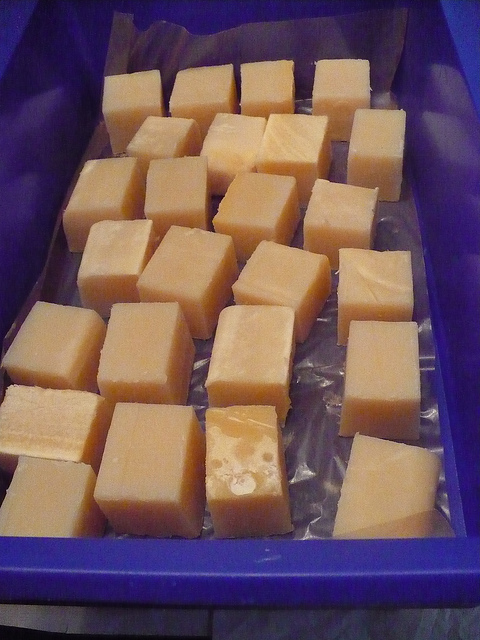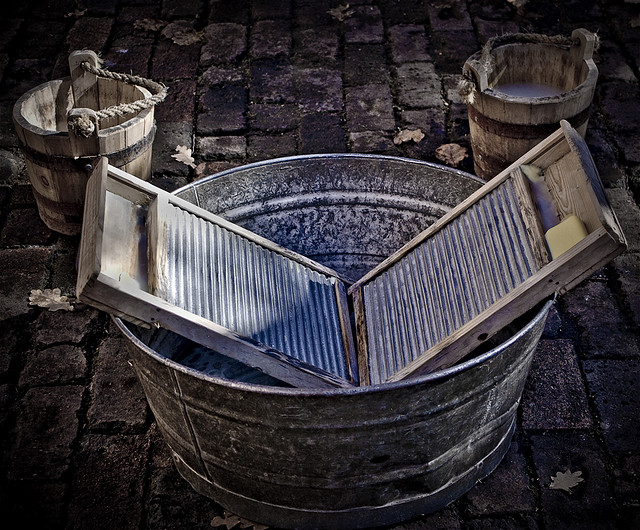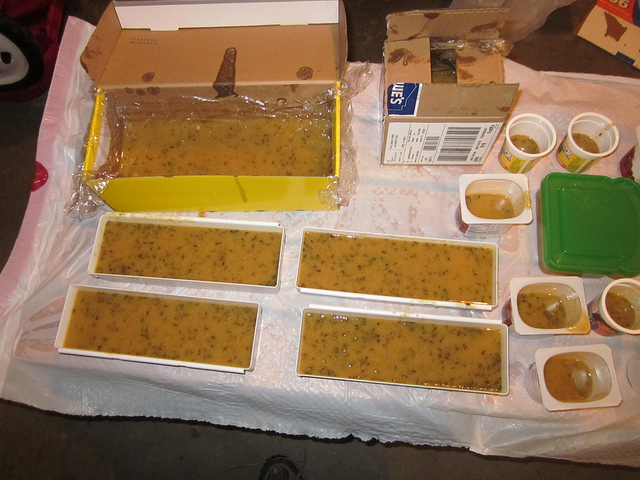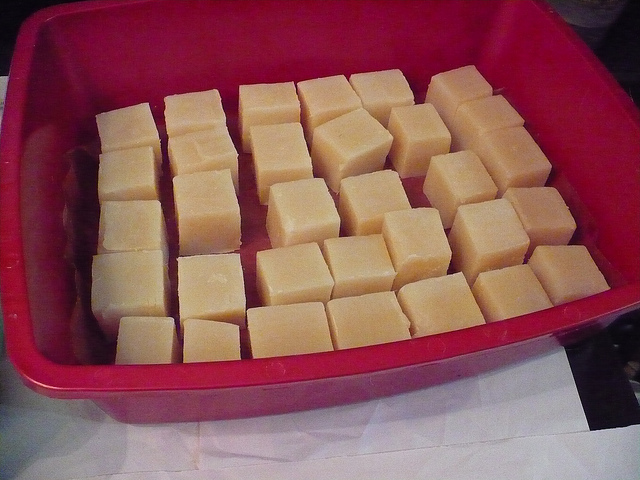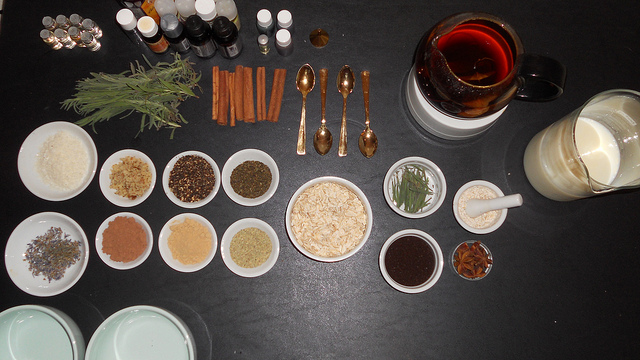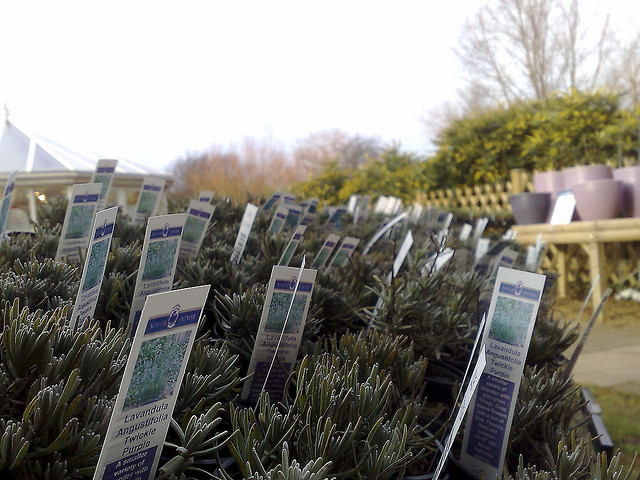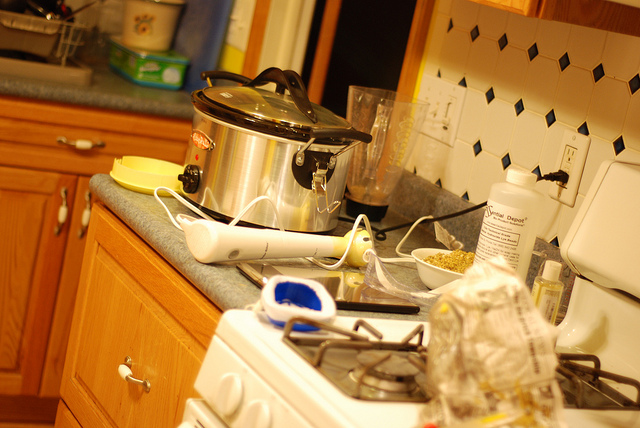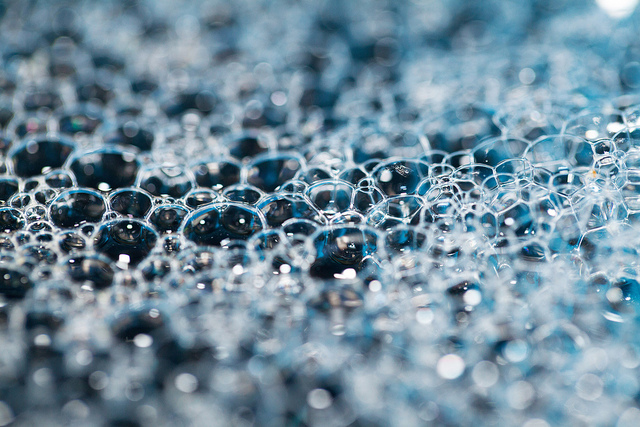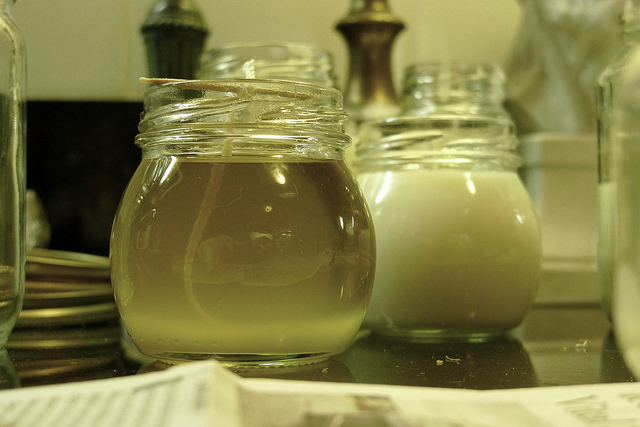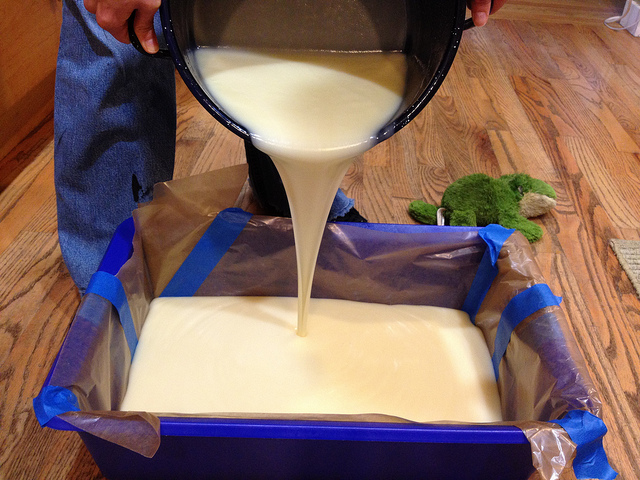Lye is an essential ingredient in soap making but it can be quite dangerous. Photo courtesy of Flickr user maoquai
In Lye Soap Making Sodium hydroxide (NaOH) or potassium hydroxide (KOH), commonly known as lye, are essential ingredients for making soap.
However, lye in all its forms can be quite dangerous, and there are certain precautions which must be taken when working with lye.
Lye is very dangerous if spilled. It is a corrosive material, and can burn skin, or any other surface it comes into contact with. Continue reading “Soap Making Method: Precautions For Working With Lye”
